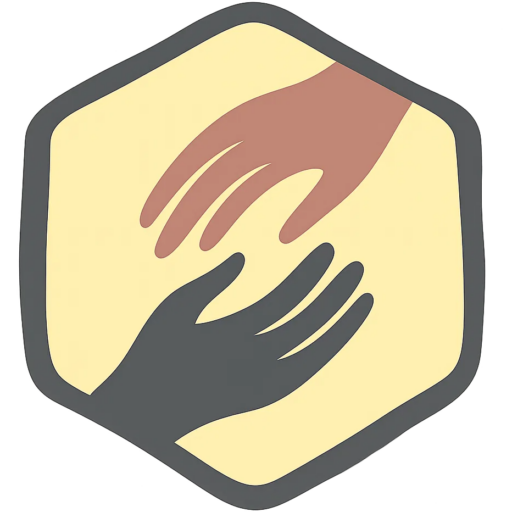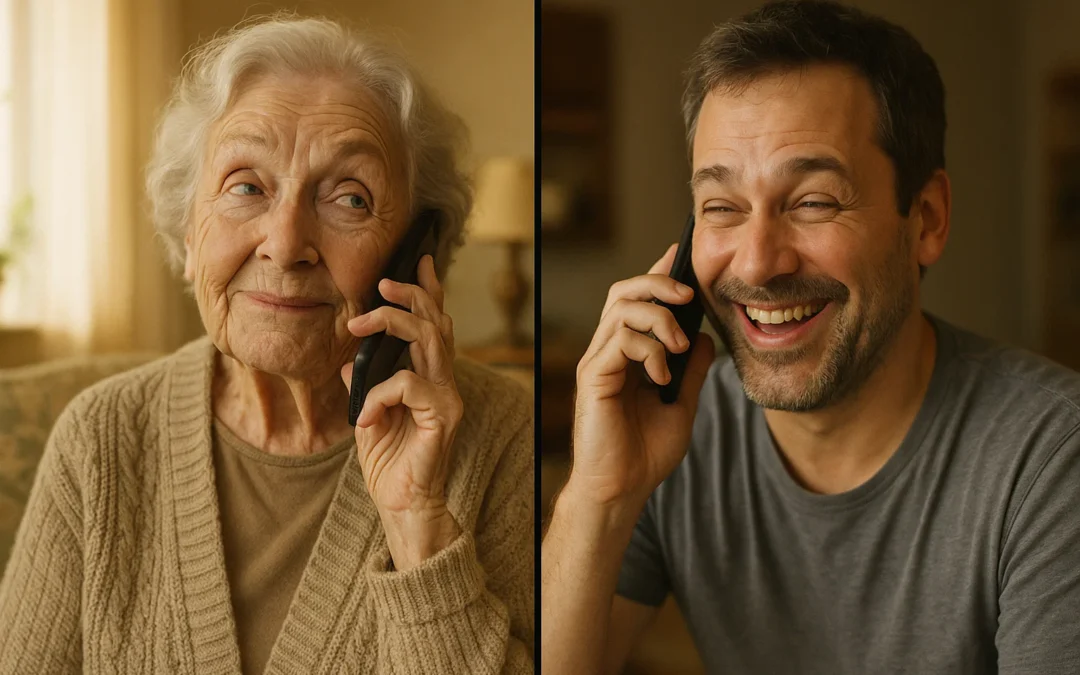More Than a Silly Phone Prank
One day, I was out of town visiting my aunt when the phone rang. It was her son.
“Is your refrigerator running?” he asked.
“Why, of course it is,” she replied.
“Well, you better stop it before it gets away!”
It was a silly, well-worn joke, and my aunt responded in mock exasperation, “Oh, go away!” Then she hung up with a laugh.
Every day, it was a different goofy joke—always met with my aunt’s mock gasp, a roll of the eyes, and a playful retort.
I didn’t realize it at the time, but this was her son’s way of checking on her. She was in her eighties—maybe even nineties—living alone since my uncle had passed years earlier. The kids were grown and gone, but that daily phone call reassured the whole family that Mom was safe and sound.
When you live alone at that age, a regular check-in can be more than comforting—it can be life-saving. That call was a daily touchpoint of connection and care.
Alone Feeling Abandoned
I think back to a time when I was single, living far from home. I came down with a bad illness that lasted a week and had to stay home from work. My only real connection in the city was my roommate—a quirky, eccentric fellow, tall and thin with wispy blonde hair that seemed to drift toward the ceiling. While I lay sick in bed, he’d slip in after work, grab food without a word, and disappear for hours. It was like living with a human-sized mouse: you’d hear the rustle but never catch a glimpse.
You’d think sharing a living space would mean at least a little conversation—especially if you were sick. But I felt utterly cut off from the world. In a city where I knew almost no one, I was alone. And I felt abandoned.
Connection Matters
That experience helps me imagine what it’s like for so many older adults today—living alone, with no one to drop by or call. Thankfully, in addition to family and friends, many organizations now exist to bridge that gap. Meals on Wheels, https://www.mealsonwheelsamerica.org/volunteer/ is one, bringing not only nourishment but also a few moments of human contact with every delivery.
Faith-based and community programs have also stepped in to help. Across the country, volunteers organized by churches, synagogues, and other community groups make regular visits or phone calls to check in on elders who live alone. Three well-known examples are:
- Little Brothers – Friends of the Elderly, https://lbfenetwork.org/ – Founded in France in 1946 by Armand Marquiset, a Catholic-inspired humanitarian, LBFE came to the U.S. in 1959. While it no longer has a religious affiliation, it remains devoted to relieving isolation and loneliness among older adults through visits, phone calls, and social events. Volunteers offer friendship, emotional support, and the assurance that someone cares.
- Stephen Ministry, https://www.stephenministries.org/default.cfm – Established in 1975 by Rev. Kenneth Haugk, a Lutheran pastor and clinical psychologist, Stephen Ministry equips trained lay volunteers within Christian congregations to provide one-on-one emotional and spiritual care to those in need. Today, it operates in more than 13,000 congregations across over 180 Christian denominations.
- Parish Nursing / Congregational Care Ministries, https://www.westberginstitute.org/ – Created in 1986 by Lutheran pastor Granger Westberg, the Parish Nursing model (also called faith community nursing) places registered nurses within congregations to provide whole-person care—body, mind, and spirit. While rooted in Christian tradition, it is now used by church communities of many denominations worldwide, offering health education, spiritual support, and home visits for those in need, especially older adults.
Whether it’s a shared meal or a silly phone joke, the message is the same: You’re not forgotten. Someone cares.

